THE IMPACT OF GOD
Soundings from St John of the Cross
Iain Matthew

www.hodder.co.uk
First published in Great Britain in 1995 by Hodder and Stoughton
An Hachette UK Company
Copyright Iain Matthew 1995
The right of Iain Matthew to be identified as the Author of the Work has been asserted by him in accordance with the Copyright, Designs and Patents Act 1988.
All rights reserved.
No part of this publication may be reproduced, stored in a retrieval system, or transmitted, in any form or by any means without prior written permission of the publisher, nor be otherwise circulated in any form of binding or cover other than that in which it is published and without a similar condition being imposed on the subsequent purchaser.
A CIP catalogue record for this title is available from the British Library
Epub ISBN: 9781444717655
Book ISBN: 9780340612576
Hodder & Stoughton Ltd
An Hachette UK Company
338 Euston Road
London NW1 3BH
www.hodderfaith.com
www.hodder.co.uk
Contents
To Elizabeth and Monk Matthew
with a sons love and thanks
Acknowledgments
My thanks first to those who have come to talks or retreats on John, and for the comments they have made.
Sincere thanks to Rowan Williams, Norbert Cummins, Mara del Sagrario Rolln, Ross Collings, Dafyd Miles Board, and to members of the Centro Internacional, Avila, for insights which have formed part of this book. In particular I am indebted to the teaching and writing of Federico Ruiz, particularly his Introduccin a San Juan de la Cruz (Madrid, BAC 1968) and Mstico y Maestro (Madrid, EDE 1986), and to the teaching of Maximiliano Herraiz. These have been uniquely inspiring.
Sister Teresa Benedicta OCD has read the manuscript in various forms and has been just great! My heartfelt thanks to her.
I am very grateful to Jean Vanier for writing the Foreword.
I wish to convey my gratitude to Teresa de Bertodano for her editorial skill and for her encouragement; also to Carolyn Armitage, to Elspeth Taylor, and to Eric Major, all of Hodder and Stoughton, for their kind assistance. Thanks to Roseann and Sue Marindin, to Olivia Caddell and to Anne King for their helpful reflections.
To Frs Jerry Fitzpatrick, John Kelly, Ronan Murphy and John Butters, the community of El Desierto de Las Palmas, and my own community, my thanks for their support.
Scripture quotations, unless otherwise noted, are from the Revised Standard Version (CE, Oxford University Press 1966). Details in the map are drawn from Dios Habla en la Noche, various authors (Madrid, EDE 1990). Crisgono de Jess, Vida de San Juan de la Cruz, eleventh edition Madrid, Biblioteca de Autores Cristianos 1982), has proved useful; so too notes in the Obras Completas mentioned below. There are excerpts from the English translation of the Rite of Holy Week ( 1972, International Committee on English in the Liturgy, Inc, all rights reserved). Some ideas and expressions in the present book coincide with my article, John and daily life in A fresh approach to St John of the Cross (Slough, St Pauls, formerly St Paul Publications, 1993).
The translations of the Living Flame and Dark Night poems, and of stanza 32 of the Canticle, are by Marjorie Flower OCD (The poems of St John of the Cross, published by the Carmelite nuns, Varroville, Australia). Johns poetry is indeed untranslatable; but Sister Marjorie has so entered into the verses that her version conveys their warmth of feeling and lightness of touch in a quite beautiful way. It manages too to follow the metre and rhyme sequence of the original Spanish. Sincere thanks to her.
Translations of the prose and remaining poetry of St John of the Cross are my own. I have used the Obras Completas, edited by Jos Vicente Rodrguez, Federico Ruiz, fifth edition (Madrid, EDE, 1993). My aim has been to transmit the spirit and vivacity of the original. This has led to some modifications in favour of contemporary usage (alma, soul, is sometimes translated person). Since the Christian assumes the role of bride in Johns writings, I generally refer to the Christian as she (which also helps the clarity of the sentence). The translations by Kieran Kavanaugh, Otilio Rodriguez (Washington, Institute of Carmelite Studies 1991) and by E. Allison Peers (Tunbridge Wells, Burns and Oates 1935) remain important reference points.
Foreword
This is a book for which perhaps unconsciously I have been waiting. Christians struggled for many years under the power of an Almighty God, fearful of this Law-giver and of the punishments they would receive if they did not obey him, and hopeful of the rewards if they did. Then the pendulum swung. Fear of authority was replaced by a negation of authority. Jesus became Emmanuel, God-with-us, the gentle and kind friend, who blesses everything and who makes few demands. It was a positive swing but something was lost in the transition: Jesus lost his divinity, his sacredness, the flame of love that purifies, hurts and burns in order to lead us into something totally new: the ecstasy of love and a peace that surpasses all human understanding.
It is important to come back to the true face of God, the God of love, a love that burns and purifies and leads to the Wedding Feast; that is the Wedding Feast. Today we have a particular need of John: John of the Cross, John of Pain, to help us discover this God of Love. Iain Matthew helps us to discover the true John.
This book reveals a humble, little John (he was even physically small), a John who suffered pain and poverty, a John of humble origins. It shows us how John met and loved Teresa of Avila and how this beautiful woman brought him hope, encouragement, inspiration and a new flame of love. Mysteriously he became her spiritual father, even though he was much younger than she. John was both loved and feared by many. He suffered terribly the pain of rejection from his religious brothers because he appeared too radical, maybe too loving. He was imprisoned and escaped from prison. This book especially reveals a John in love with Jesus, desirous to follow him in all things, yearning for union with God. John feared and fought against a cheap god, a god of the imagination and of human dreams, a god who was an idol rather than a reality, a god who blesses our mediocrity and weaknesses rather than calling us to growth. John sought the real God, the flame of love that burns and quenches the deepest yearnings of our wounded hearts.
The God revealed by John is not a God to be feared: God is a Lover. Jesus, the Word made flesh, is a gentle and demanding Bridegroom: we are the bride. God seeks us like the Hound of Heaven, to bring us poor mortals into the friendship and ecstasy of love. Iain Matthew shows us through the writings of John, the beauty, the power, the humility and the vulnerability of this wondrous God of Love who is looking for space in our hearts: Open up the door of your hearts. Let this Lover, this Tremendous Lover, into your being. That is the message of John.
Opening up can, however, be painful. It means becoming vulnerable, leaving and losing things that give security. John tells us that the way to open up is through faith. It is through belief and trust in the promises of Jesus, in the person of Jesus, calling us through the pain to a union of love. And John tells us not to seek the marvellous, the extraordinary, or even the charismatic, but rather the presence of God who burns us, who gives and reveals divine love, the life of the Trinity, through faith, hope and through all our gestures of love towards our brothers and sisters, especially the poorest.
Next page

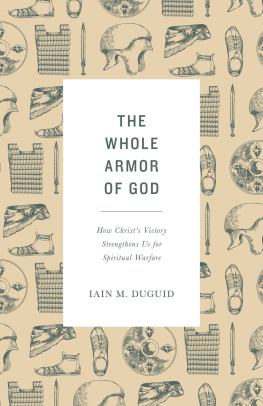
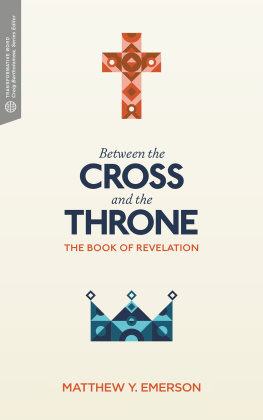
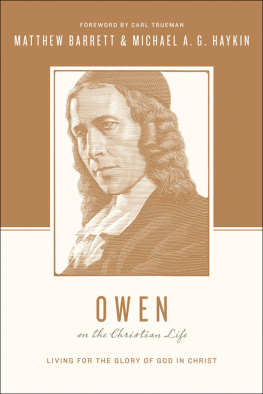
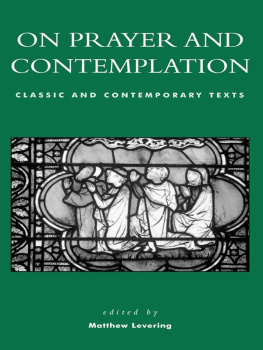


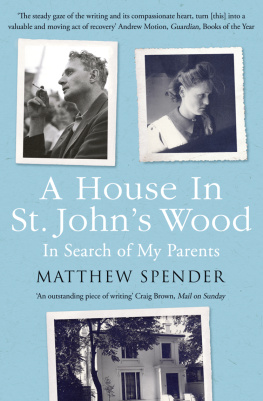
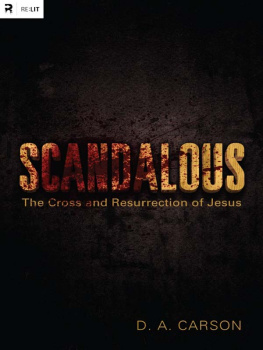
![Iain Maitland [Iain Maitland] - Mr Todd’s Reckoning](/uploads/posts/book/141709/thumbs/iain-maitland-iain-maitland-mr-todd-s.jpg)
